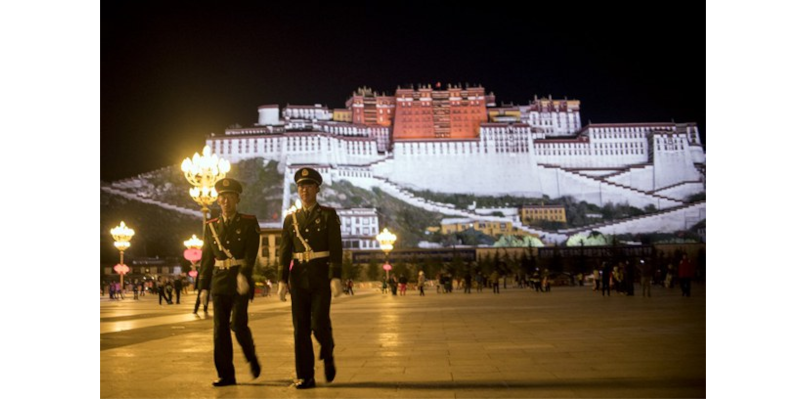Dharamshala, 13th March: Security in Tibet’s capital Lhasa was notably intensified on Thursday according to RFA, to suppress and prevent commemoration of the uprising against Beijing’s control, just a week after a well-known Tibetan musician set himself on fire in protest in front of the city’s renowned Potala Palace.
Military vehicles were out in force in the capital and several streets were sealed off on the day(10th March) that tens of thousands of Tibetans flooded the city to protest China’s annexation of their homeland 63 years ago. The revolt was put down by Chinese security forces, resulting in a harsh crackdown on Tibetans and the exile of their spiritual leader, His Holiness the Dalai Lama, to India.
It is reported that authorities have been hiring unemployed Tibetans from the outskirts of Lhasa to enter the city to “watch the situation” for any signs of disturbance, particularly around the revered Sera, Drepung, and Ganden monasteries. Police had been surveilling the three monasteries in Lhasa day and night in the run-up to Thursday’s anniversary, and controls were substantially stricter than the previous year.
Authorities are especially concerned when Tsewang Norbu, a popular modern Tibetan singer, yelled slogans and set himself on fire in front of the Potala Palace in Lhasa on Feb. 25. Norbu, 26, died as a result of his injuries, making him the 158th Tibetan documented to have set fire to oppose Chinese authority in Tibetan territories since 2009. Another eight people have committed suicide in Nepal and India.
While the Potala Palace and other sites are currently available to the public, there are a large number of Chinese police officers in uniform and in plainclothes stationed throughout the region to monitor all activities.
In Sichuan province’s Kardze (in Chinese, Ganzi) and Ngaba (Aba) Tibetan Autonomous Prefectures, as well as Gansu province’s Kanlho (Gannan) Tibetan Autonomous Prefecture, there were tighter controls ahead of the anniversary, including the installation of new security checkpoints.

